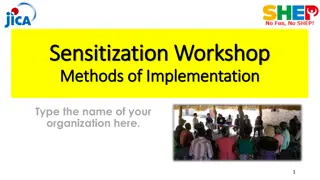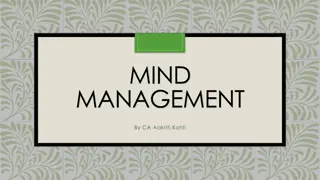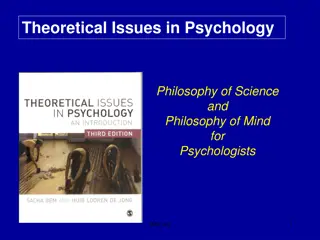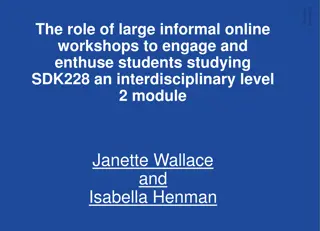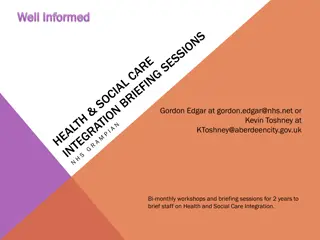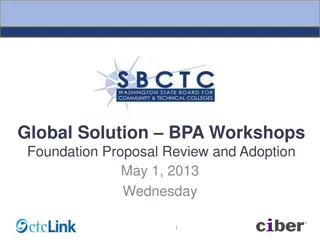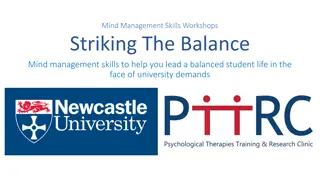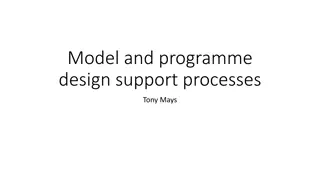Mind Management Skills Workshops for University Students
This series of workshops hosted by a clinic provides cognitive behavioral therapy techniques to help university students manage stress and common challenges. Participants can learn practical strategies to improve their mental well-being while maintaining confidentiality and respect for each other.
Download Presentation

Please find below an Image/Link to download the presentation.
The content on the website is provided AS IS for your information and personal use only. It may not be sold, licensed, or shared on other websites without obtaining consent from the author.If you encounter any issues during the download, it is possible that the publisher has removed the file from their server.
You are allowed to download the files provided on this website for personal or commercial use, subject to the condition that they are used lawfully. All files are the property of their respective owners.
The content on the website is provided AS IS for your information and personal use only. It may not be sold, licensed, or shared on other websites without obtaining consent from the author.
E N D
Presentation Transcript
Mind Management Skills Workshops Adjusting to University Life
Introduction to our series of workshops Our clinic Psychological Therapies Training and Research Clinic Our roles: Cognitive Behavioural Therapists and Clinical Psychologists The purpose of these workshops to reach a greater number of students experiencing common problems and stressors To learn ways of overcoming these problems and improving wellbeing in doing so Not mental health problem centred Not group therapy programmes Invitation to learn new skills and meet new people
Housekeeping Today s workshop will run for 90 minutes and is designed to be interactive we encourage participation Confidentiality you are not expected to share anything that you do not want to, however we do request that anything that is shared remains confidential and is not shared with any one else outside of the group Please be respectful of other group members who may choose to share their experiences maintain the confidentiality of the group
Further Support The workshops are designed to be skills-focussed, rather than problem-centred. However, if any of today s discussion or exercises cause you to experience distress, you may wish to pursue further support Full details can be found in the supporting information you received before this workshop Accessing the Student Health and Wellbeing Service Listening services such as the Nightline and the Samaritans How to access evidence-based therapy through the NHS
Goals for today Explore some of the challenges of adjusting to life at University Learn about the CBT model and vicious cycles Increase awareness of unhelpful patterns and traps that make it harder to adjust to University life Consider how we can break out of unhelpful patterns Think about behavioural strategies than help to manage our stress
Why Adjusting to University Life? We ran a series of focus groups with undergraduate students to find out what they experienced as common difficulties in student life The tasks involved in adjusting to University life were reported as some of the most common problems students struggled with We want to provide workshops to help UG students learn ways of adjusting effectively to the challenges of University life
What is CBT? An evidence-based talking therapy A way of understanding the relationship between our thoughts, emotions, physiology and behaviour A therapy that provides a range of coping strategies or techniques that can influence these patterns Some of which we will be discussing later in this workshop
Life Changes and adjustments Beginning University for the first time as an undergraduate student is a major life event UG students have to adjust to multiple changes in their day to day routines
Life Changes and adjustments Social changes Reduced contact with family in daily life Learning to live alongside housemates Reduced contact with friends from college or school Geographic changes Living in a new room, flat or house for the first time Getting to know the broader Campus Learning the local area, new City Centre Occupational changes Adjusting to fully independent study Accountability for lecture attendance Managing workload and assignments independently - - - - - - - - - Routine changes - Managing self-care learning new skills - Different timetable - Domestic tasks Leisure changes Not having the same sports, hobbies, teams More opportunities to join societies and experience new activities Financial changes - - Living on a budget - Managing money - Part-time work -
Life Changes and adjustments Adjusting to UG life involves letting go of old behaviours/routines and creating new ones Attending school -> going to lectures/independent study Seeing schoolfriends -> getting to know house and course-mates Leaving previous clubs -> joining new societies Successfully adjusting requires both letting go of the old way of doing things and embracing new ways
Life Changes and adjustments Adjusting can be difficult Getting used to new routines and ways of doing things can be very stressful It can be tempting to fall into solutions that offer short-term relief to this discomfort, but don t help us to adjust in the long-term The CBT model explains this clearly
Vicious Cycles in CBT Trigger Thoughts Behaviour Emotions Physical
Vicious Cycles in CBT Trigger attending a revision lecture before the exam and realising I haven t been keeping up with the reading and workload for the module Thoughts I m going to fail this! I ve got so much reading to do Emotions feel anxious, panicked Behaviour procrastinate, distract myself with Netflix Physical tense, hot, restless
Vicious Cycles in CBT Trigger falling out with a flatmate Thoughts they re judging me, no one wants me to live in this flat with them Emotions feel low, miserable Behaviour withdraw, shut myself in my bedroom, avoid the rest of the flat Physical heavy, lethargic
Exercise the vicious cycle Use handout 1 Either individually or if comfortable, in pairs or threes Bring to mind an example of a time you struggled with adjusting to an aspect of University life Choose an example that is not too distressing and that you are comfortable reflecting on in this group Complete the handout: What situation were you in? What went through your mind? How did you feel? What did you do? How do these things connect?
How behaviours are reinforced A behaviour is more likely to be repeated if we experience reinforcement after doing it A behaviour is less likely to be repeated if we experience something unpleasant or undesirable after doing it (punishment) There are two ways a behaviour can be reinforced Positive reinforcement Negative reinforcement
Positive reinforcement When a behaviour causes something pleasant or desirable to occur as a consequence of it Something good occurring after an action increases the chance of it being repeated in the future Behaviour Went to the union with Alex and had a chat and a few pints Behaviour of going to the union with Alex is more likely to be repeated again in the future Consequence Had a laugh, we both had fun and enjoyed ourselves
Negative reinforcement When a behaviour causes something unpleasant or undesirable to reduce as a consequence of it Something bad reducing after an action increases the chance of the action being repeated in the future Consequence For a while I stopped feeling stressed out when I was doing something else Behaviour Putting off starting my assignment by playing videogames Behaviour of putting off the assignment likely to be repeated again in the future
Negative reinforcement Trigger attending a revision lecture before the exam and realising I haven t been keeping up with the reading and workload for the module Thoughts I m going to fail this! I ve got so much reading to do Emotions feel anxious, panicked Behaviour procrastinate, distract myself with Netflix Physical tense, hot, restless
Negative reinforcement Trigger attending a revision lecture before the exam and realising I haven t been keeping up with the reading and workload for the module Thoughts I m going to fail this! I ve got so much reading to do Emotions feel anxious, panicked Behaviour procrastinate, distract myself with Netflix Physical tense, hot, restless
Negative reinforcement Behaviour such as avoidance, distraction and procrastination can be very effective in the short-term Trigger feeling anxious after realising the work I haven t done for the exam Consequences Relief from feeling anxious happily distracted with a boxset Behaviour Procrastinate distract myself with Netflix Psychological Therapies Training and Research Clinic; School of Psychology
The trap but often produces unwanted or unintended consequences later on This is what can make adjusting difficult, as behaviour that causes short-term relief from feeling bad is not the same as behaviour that causes us to feel good in the long run Long-term consequences Less time to revise now, more anxious that if I started earlier Trigger feeling anxious after realising the work I haven t done for the exam Consequences Relief from feeling anxious happily distracted with a boxset Behaviour Procrastinate distract myself with Netflix Psychological Therapies Training and Research Clinic; School of Psychology
Alternative coping Having reflected on specific behaviours that can make adjusting more difficult, we want to consider alternative actions Behaviour that will be more difficult in the short-term but produce much more desirable consequences in the long run Short-term cost for long-term benefit Trigger feeling anxious after realising the work I haven t done for the exam Behaviour Work out where to begin and start reading for a couple of hours Long-term consequences Stress reduced as I got into it, sense of accomplishment at what I got done, less intimidated to do the rest now Consequences Initial rise in anxiety when I started working, effort of reading difficult material Psychological Therapies Training and Research Clinic; School of Psychology
Trap vs Alternative Coping Long-term consequences Less time to revise now, more anxious that if I started earlier Consequences Relief from feeling anxious happily distracted with a boxset Behaviour Procrastinate distract myself with Netflix Trigger feeling anxious after realising the work I haven t done for the exam Behaviour Work out where to begin and start reading for a couple of hours Long-term consequences Stress reduced as I got into it, sense of accomplishment at what I got done, less intimidated to do the rest now Consequences Initial rise in anxiety when I started working, effort of reading difficult material Psychological Therapies Training and Research Clinic; School of Psychology
Trap vs Alternative Coping Trigger attending a revision lecture before the exam and realising I haven t been keeping up with the reading and workload for the module Thoughts I m going to fail this! I ve got so much reading to do Emotions feel anxious, panicked Behaviour procrastinate, distract myself with Netflix Behaviour Physical tense, hot, restless Work out where to begin and start reading for a couple of hours
Exercise Use handout 2 Either individually or if comfortable, in pairs or threes Using your example from handout 1, work through handout 2 What was your behaviour in response to the situation? And what were it s short and long-term consequences? What alternative coping behaviours can you think of that could help in this situation? Any what consequence could they lead to?
Trap vs Alternative Coping The typical pattern: behaviour that forms a trap is easier in the short- term (relief) but harder in the long run, alternative coping is harder in the short-term (effort) but better in the long run There isn t an easy or magic solution to this predicament behaviour that is helpful is often harder to do than behaviour that comes easily Psychological Therapies Training and Research Clinic; School of Psychology
Tips for alternative coping Plan a behaviour that is specific What will I do? When? Where? Who with? How long for? What will I need in order to do it? Imagine/visualise the behaviour beforehand rehearsal Be realistic grading the behaviour Flash forward imagine the outcome once it has been done vs the consequences of not doing it Ultimately, act against your inclination Psychological Therapies Training and Research Clinic; School of Psychology
The Stress Bucket Psychological Therapies Training and Research Clinic; School of Psychology
Key Messages Taken from https://www.pinterest.co.uk/pin/54275 4192595039435
Problem-focussed coping Relieving stress through addressing the problem Approaching the issue that needs to be solved Accessing resources Influencing what can be changed What strategies help you problem solve? Psychological Therapies Training and Research Clinic; School of Psychology
Emotion-focussed coping Behaviour that reduces stress Helpful when sources of stress can t necessarily be changed Ways of achieving relaxation Part of self-care and good wellbeing Individual what helps a person relax from stress will be unique to them What do you do that helps you reduce feelings of stress? Psychological Therapies Training and Research Clinic; School of Psychology
Exercise Use handout 3 Either individually or if comfortable, in pairs or threes Work through the stress bucket Identify your common sources of stress Work out what your taps are Problem-focussed Emotion-focussed What can you do to lower the water level?
Key messages Adjusting to University life is challenging Successfully adjusting means letting go of old routines and investing in new ways of doing things Traps occur when we do things that give short-term relief but don t help us in the long run Alternative coping behaviours can be harder at first but worth it in the end It is helpful to be mindful of your stress levels and what you need to do to look after yourself
Homework Practice the skills from today s workshop Using your handouts, throughout the week use the blank vicious cycle diagrams to record your thoughts, feelings and behaviours when you notice you are struggling with an adjustment to University life Identify what you are doing and what consequences it will lead to Work out alternative coping behaviours Plan specifically what to do differently Think about your stress bucket and what you need to do to keep the water level low
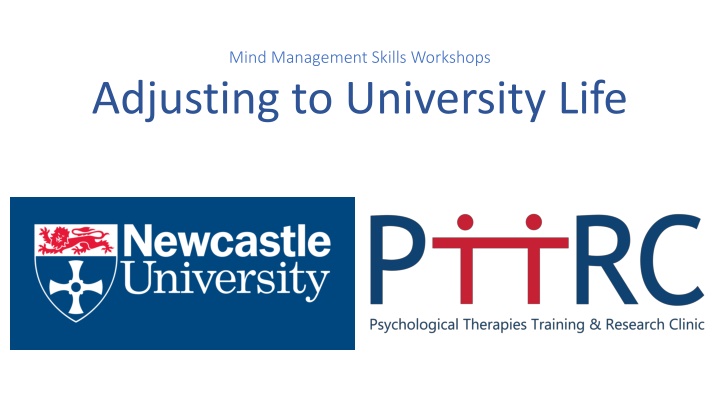

![[PDF⚡READ❤ONLINE] Zen Mind, Beginner's Mind: 50th Anniversary Edition](/thumb/20459/pdf-read-online-zen-mind-beginner-s-mind-50th-anniversary-edition.jpg)
